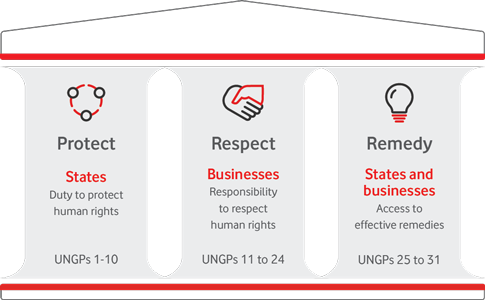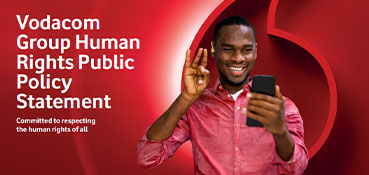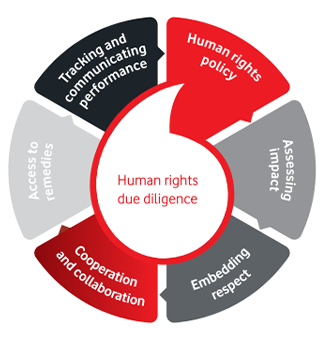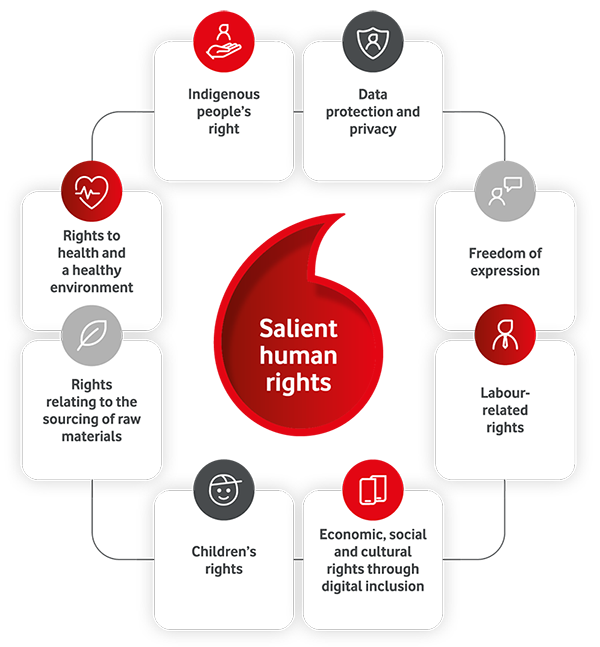Vodacom Human Rights Policy

Vodacom is committed to respecting human rights and to positively impacting people. Our human rights strategy is aligned with the United Nations Guiding Principles on Business and Human Rights. We are a signatory of the United Nations Global Compact (UNGC) and members UNGC local networks.
Our human rights public policy statement brings together our approach to managing our most salient human rights impacts, outlining our commitment to freedom of expression, privacy, child online safety, labour rights and responsible sourcing. It explains our approach to governance and how we embed respect for human rights across our operations, setting out the minimum requirements that everyone working for, and with, Vodacom must comply with.
Our human rights public policy statement is backed by our internal human rights policy which sets out how our employees, contractors and suppliers must ensure we respect human rights, including steps to take through other aligned policies, such as human resources, supply chain management and code of ethical purchasing.
We took a structured and collaborative approach to develop our human rights policy.
Assigned ExCo and senior leadership responsibility
Established cross-functional working group
Conducted a gap analysis and policy mapping aligned with international standards and industry-specific principles to address our most significant impacts.
Reflected human rights policy in operational policies and procedures
Adopted by the Group CEO and ExCo and approved by the Vodacom Group Social and Ethics Committee
Communicated internally and externally
Continuous review and tracking of compliance

 Lesotho
Lesotho Tanzania (EN)
Tanzania (EN) DR Congo
DR Congo Mozambique
Mozambique South Africa
South Africa


